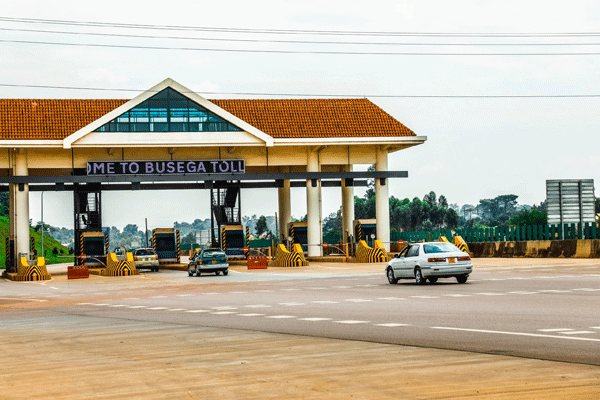Prime
Govt to create more road tolls

UNRA says collections from Entebbe Expressway have given government some good insights. Photo / File
What you need to know:
- Government says the Entebbe Expressway has provided a good base on which more road-tolling projects can be implemented
Government has indicated it will introduce road tolls on new road projects after experiencing good returns from the Entebbe Expressway.
The strategy, government says, will enable Uganda to develop road infrastructures without contracting debt.
Currently, Uganda has an annual infrastructure development financing gap of nearly $1.4b, according to the Ministry of Finance Debt Sustainability Report 2024.
Speaking during the AB & David Africa Round Table discussion on how to deliver infrastructure projects without building public debt in Kampala, Ms Allen Kagina, the Uganda National Roads Authority (UNRA) executive director, said public-private partnerships were the way to go because of the success of the Entebbe Expressway.
In the 2012/13 financial year, she said, government conducted a survey on a toll fee arrangement for the Entebbe Expressway, which was found viable.
Government had projected to collect about Shs2b from road tolls on the Entebbe Expressway, but in the first month, UNRA collected Shs3b, which Ms Kagina said continues to rise
“We found that tolling was a viable project and when we opened the Entebbe Expressway in January 2022, traffic outstripped our projections. We projected 13,000 vehicles per day but on [some days we have had] 16,000 vehicles,” she said, noting that government is expected to install toll gates on the Kampala-Jinja Expressway, which even though has delayed, compensations had started covering Munyonyo to Namataba, while the one which covers Namataba to Jinja, will come later.
“We are buying land in phases, we have encountered some hiccups in Kasokoso but we have been discussing with leaders and by the time we get a developer we will have got enough land to start,” she said.
UNRA also revealed that there is a plan for another outer belt road for Kampala due to increasing vehicle hold-ups on the Northern bypass, so that “we can take as much traffic as possible out of the city,” to decongest Kampala.
Mr Jim Mugunga, the Ministry of Finance Public Private Partnership Unit executive director, said public-private partnerships are a key source of revenue yet at the same time they reduce the burden of government contracting loans for development projects.
“If the Kampala-Jinja Expressway is constructed in the next two years, the contractor will not be paid immediately but will be allowed to collect toll fees spread over a period, which saves the country the cost of about $1b in one batch,” he said, noting that public-private partnerships have attracted interest with at least eight bidders seeking to implement the Kampala-Jinja Expressway project.
Road infrastructure remains one of the single most expensive investments in Uganda.
The Ministry of Finance Debt Sustainability Report 2024 shows that Uganda needs at least $1.4b to finance the road infrastructure gap.
Ms Kagina said to date about 30 public-private partnerships worth $9.1b have been concluded with the major ones being Umeme power distribution concession, Kampala Serena Hotel, Bujagali Hydropower project, and Eskom power generation among others.
“[Public-private partnerships] can ease fiscal constraints of infrastructure investment if challenges like the development of institutional capacity are addressed,” she said.
Mr Daniel Lubogo, the AB & David managing partner, said countries such as Ghana have worked on large public partnerships to build large projects such as the road linking Ghana to Ivory Coast, Zambia, and DR Congo.




